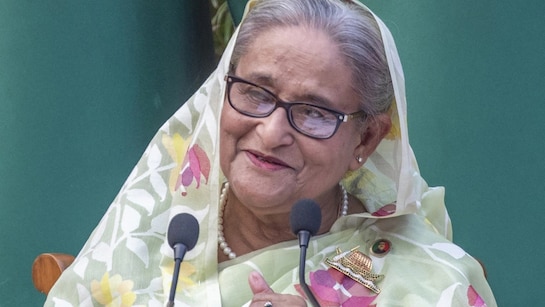New Delhi Chronicle Desk
New Delhi | November 17
In a dramatic turn of events, Bangladesh’s International Crimes Tribunal (ICT) has sentenced former Prime Minister Sheikh Hasina to death in absentia, finding her guilty of “crimes against humanity” related to the violent crackdown on the student-led uprising in July–August 2024.
The Charges and the Verdict
The tribunal accused Hasina of ordering and inciting violence against protesting students, authorising the use of lethal force, and failing to prevent widespread atrocities. A three-judge bench delivered the capital punishment after finding her guilty on three major counts. Alongside the death sentence, she was also handed a separate sentence of imprisonment “until death” for related offences.
Former home minister Asaduzzaman Khan Kamal was also sentenced to death, while former police chief Chowdhury Abdullah Al-Mamun, who testified as a state witness, received a five-year prison term.
The Prosecution’s Case
Prosecutors argued that as many as 1,400 people were killed during the 2024 protests and described Hasina as the “mastermind and principal architect” of the crackdown. They stated that she deserved a sentence for every life lost but urged at least one death penalty under the ICT Act. The case relied on witness testimonies, phone recordings, and investigative material alleging Hasina’s direct involvement in authorising violent suppression.
Hasina’s Response
Speaking from her place of exile in India, Sheikh Hasina rejected the verdict, calling the tribunal “biased” and “politically motivated.” She said she was not given a fair opportunity to defend herself and argued that the trial conducted under an unelected interim government lacked legitimacy. Despite the in-absentia conviction, she retains the legal right to appeal to the Appellate Division of the Supreme Court of Bangladesh, and — in theory — can seek presidential clemency.
Reactions and Implications
Families of victims expressed relief, describing the verdict as long-awaited justice. However, human rights groups and legal experts have raised concerns about whether the ICT adhered to fair-trial standards, especially in cases where the death penalty is involved.
Politically, the verdict is expected to deepen Bangladesh’s internal polarisation. The sentencing comes ahead of the February 2026 general elections, in which Hasina’s Awami League has already been barred from participating by the interim authorities. The ruling further complicates the nation’s political transition following Hasina’s ouster in 2024.
Diplomatically, the situation may strain Bangladesh–India relations. With Hasina currently in India and Dhaka seeking her extradition, the case could become a sensitive bilateral issue.
Broader Significance
The verdict marks a historic moment: rarely has a former head of government been sentenced to death by a domestic tribunal, and almost never while in exile. To many, the case represents accountability for state-backed violence; to others, it signals political retribution and judicial overreach.
As Bangladesh moves toward elections and attempts to stabilise its political landscape, the reverberations of this judgment will likely extend far beyond the courtroom — shaping regional dynamics, power equations, and the nation’s democratic trajectory.




